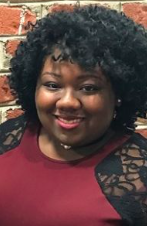Essential Tips for a Successful Interview

Kevin Campbell, a Marketing Communication Lead at Siemens Healthcare, spoke to the Millersville University PRSSA Chapter about the importance of effective interviewing. Below are some of his best tips.
Interviewing is nothing more than a social exercise. Do not focus on your competition because you do not know the competition nor their qualifications or the lack thereof. Be the best person you can be and it will pay off. Although another candidate may be more qualified, if you walk into an interview prepared and confident, you have a strong chance of securing the job.
Being yourself and selling your traits is far more meaningful than attempting to fit the mold of what you think employers are looking for. Do not try to sell something that you do not have—use what you have and make it your selling point.
Preparing For The Interview:
Before any interview, it is important to ask who you are interviewing with and what your relationship in the desired position will be with that individual. It is always a good idea to look up your interviewer prior to your interview so you can learn more about them on a personal and professional level. It not only shows initiative but will show the potential employer you care about the position and the people you will be working for.
Metaphorically speaking, you must do your homework and be thorough in doing so. Be mindful that the employer you are interviewing with will research you in the same manner before extending an invitation to interview for the position. Be aware of the content on your social media as far as your posts, profile pictures and friends/connections/followers.
As mentioned earlier, it is imperative to not only research the interviewer but also the company you’re applying to. Interviewers will undoubtedly ask questions about the company to see what you already know and if you cared to conduct your own research. The next time you land an interview, ask yourself why an employer would want to hire someone who does not care enough to even look at their website.
The Day of The Interview:
The importance of being on time cannot be stressed enough. It is best to give yourself enough time to arrive at least 10 – 15 minutes early. An interview is a chance to make a first impression; therefore, you do not want the first thing your potential employer learns about you to be that you arrive late.
If you are not familiar with the commute to the interview location, drive it the day before the interview during the same time of day as the interview. This will ensure you know how long the route is and will allow you to add additional time if needed.
Once you arrive for the interview, it is crucial to stay OFF your phone and stay aware of your surroundings. You never know how important the people who pass you are so it is important to be pleasant and speak to everyone you encounter. You want to appear open and approachable because you may land a conversation with the company CEO without knowing it. If you have done proper research, however, you will already know what your interviewer(s) looks like and can be on the lookout for these individuals.
What To Bring To An Interview:
Never come to an interview empty-handed—it’s a turn-off and it will leave the employer with a negative opinion of you. Always come to an interview prepared with a copy of your resume and samples of your work in a portfolio case: You should also bring a notebook for note-taking. This shows you are attentive and you care about both the company and what the interviewer has to say.
During The Interview:
In a sense, you should have the interview rehearsed and be prepared for anything the interviewer may ask. For this reason, you should have a fast fact solution sheet. In other words, have go-to answers so you are not in any way caught off guard by the interviewers’ questions. Essentially, you must run the interview. Interviewers will notice this and appreciate your drive.
It is also imperative to mention things of relevance. If you manage to show the interviewers why their company needs you, it will take the attention off “drilling” you. Use discretion and be mindful of the questions you ask and how the interviewer may perceive it.
Be sure to ask questions throughout the interview and at the close of the interview. Have a list of generic go-to list of 10 questions and ask at least half of them—obvious questions are okay to ask but you should prepare questions that are tailored specifically to the company or the position based on the website. An effective means of showing the employer that you are an asset is ending the interview by asking what you can do to help them succeed.
This takes the attention off yourself and again, shows the employer that you care about more than just landing a position. Do not be ashamed to make it known how badly you want the job! Without being intrusive, ask if there is anything about your candidacy that would stop you from getting the job because of how much you want it. In an interview there is a short period to tell an employer how good you are but more importantly, you need to be able to SHOW them.
After The Interview:
Send a thank you email and send a handwritten thank you note to everyone who interviewed you. Handwritten notes show effort and thoughtfulness but sending an email as well can be effective in case the letter takes a few days to get to the employer. After the interview be sure to get the employers business card(s) because it has their contact information.
DO NOT write the same note and address it with different names—be creative with each person who interviewed you by pointing out a connection you shared in the interview to differentiate yourself and REMIND them why you are ideal for the job. Essentially, assume they do not care about helping you and sell how you can help them.
If you do not hear back within a timely manner, do not be afraid to reach out to the employer regarding the status of your interview. Again, show the interviewers that you care and are still interested in the position.
The art of interviewing is simple once understood and mastered. The key is to be yourself and show an interviewer just who that is to land the position.
–
Briana Spears is the 2018-2019 vice president of digital communication for PRSSA National

